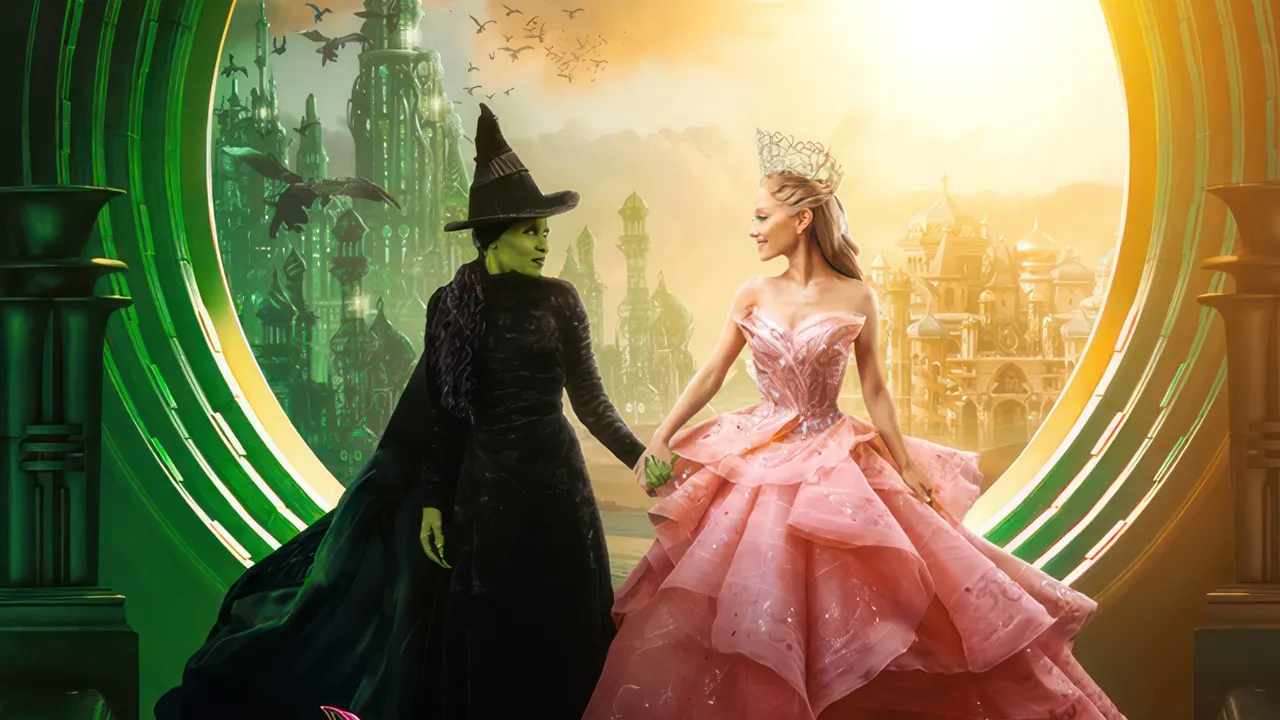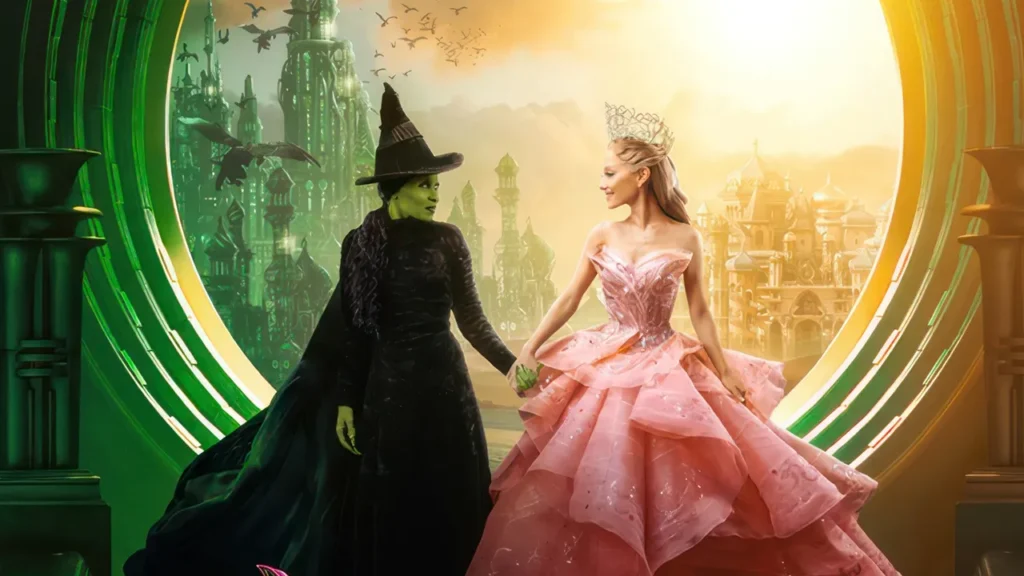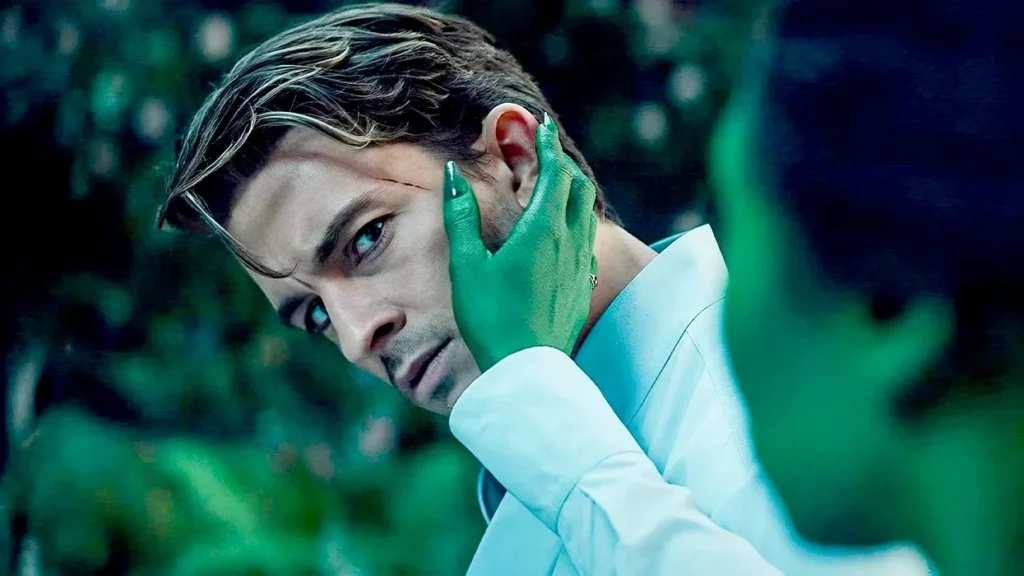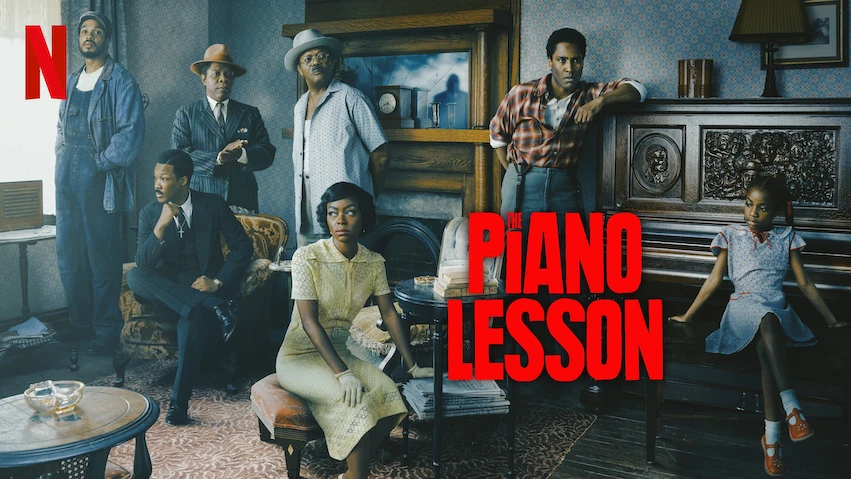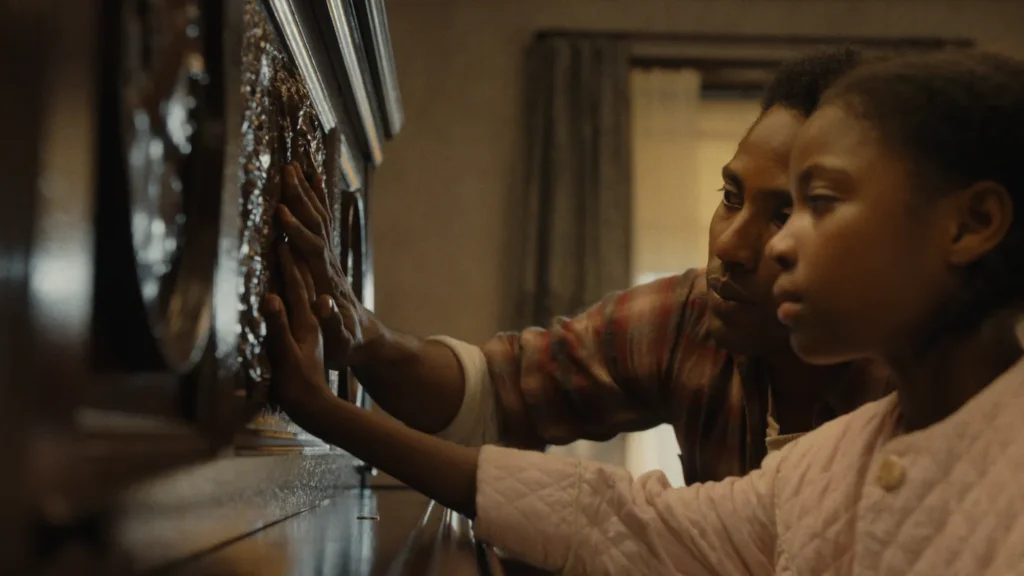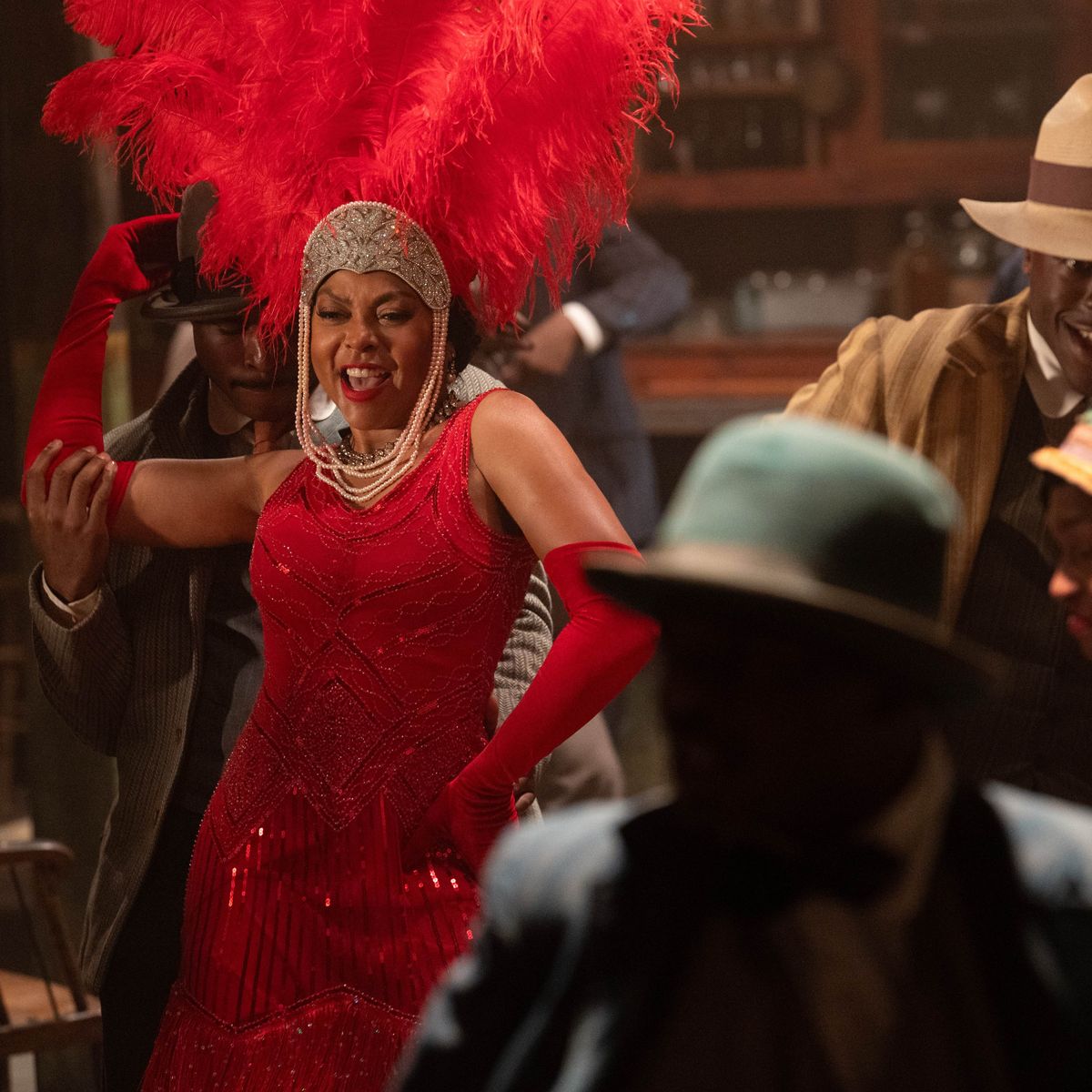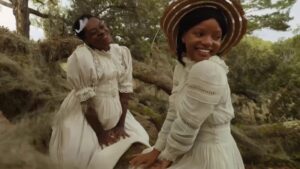Wicked: For Good
Posted on November 20, 2025 at 5:37 pm
B +| Lowest Recommended Age: | Middle School |
| MPAA Rating: | Rated PG action/violence, some suggestive material, and thematic material |
| Profanity: | None |
| Alcohol/ Drugs: | Brief alcohol |
| Violence/ Scariness: | Fantasy peril and violence, character killed |
| Diversity Issues: | A theme of the movie |
| Date Released to Theaters: | November 21, 2025 |
I liked “Wicked: For Good” a lot. But before I tell you why, let me warn anyone out there who is hoping that part two of the movie based on the Broadway musical, based on the book, inspired by the classic L. Frank Baum story will be a lot like part one that the second half of the story is much darker and less hummable than the first. If you want to revisit the magical college for teenagers, gorgeous songs and dance numbers, and ode to opening your hearts to friendship with those who you might initially consider to be too different, then watch the first one again.

“Wicked: For Good” picks up 12 Ozian years later, long past the days of the dorms, classes, and parties at Shiz University. But Galinda, now known as Glinda (Ariana Grande), is finally something of a teacher’s pet, though in this case she is more of an operative for the powerful Madame Morrible (Michelle Yeoh), the top advisor for the Wizard (Jeff Goldblum). So, she’s less “pet” as in favorite as “pet” as in being a convenient (not asking questions) and attractive (yes, popular) spokesperson. As a student, Glinda was unable to get Madame Morrible to teach her. Indeed, she was blunt in telling her would-be apprentice that she had no talent for magic. As an adult, Madame Morrible found her to be an ideal focus of attention for the population, reassuring them that all was well.
Glinda loves being adored by the population and does not think too hard about the cruelty of the Wizard’s reign, even when her one-time friend Elphaba (Cynthia Erivo) is now public enemy number one, with wanted posters all over Oz declaring her a threat. Fiero (Jonathan Bailey) is now an officer in the Wizard’s guard, feeling conflicted about Elphaba. But when Glinda announces to the crowd, that they are engaged, Madam Morrible’s idea as the latest entertaining distraction, Fiero goes along with it.
Nessarose (Narissa Bode) has now taken over the position of her late father and is governor of Munchkinland. She is still in love with Bob (Ethan Slater), not knowing that he only asked her to the school dance because Glinda told him to and he only stayed by her side after her father died because he still wanted to be a support for her. When he tells her he thinks it is time for him to leave, she impulsively imposes travel restrictions to keep him from going. Both Bok and Fiero do not want to let down the women who love them, though they long to be with someone else.
Glinda tries to get Elphaba to join the Wizard, and she almost agrees, after he promises to release the flying monkeys and allow the animals to return. When she learns he has not been honest, she resolves to become his enemy.
We know where this is going. While some of the details of the very familiar story are changed, including the origin stories of the Tin Woodman and Scarecrow, the little girl in the checked dress from Kansas and her dog arrive in a storm (the origin story of the storm is well handled) and most of the consequences for the characters remain the same. There are even touches from the MGM movie, for example, when Madame Morrible says a line Margaret Hamilton delivers so memorably about what “must be done delicately.”
Almost all of the now-iconic musical numbers are in the first movie. Despite the best efforts of two powerhouse singers, the songs from the play’s second act and a couple of new ones do not reach those soaring heights. Some reprises come as a relief. The new songs are less tied to defining character developments or crowds performing lively dances. The storyline nearly tips over into making unrequited love the motive for the main characters’ anger, hurt, and motivation for bad behavior, before remembering that the real heart of the story is about choosing trust, kindness, and inclusion over fear and grabs for power.
Production design by Nathan Crowley remains stunning, from the most intricate details to the grandest visions. The same goes for Paul Tazewell’s fabulous costumes. Erivo and Grande sing, never less than transcendently spectacular. Jonathan Bailey gives Fiyero a quiet smolder as he goes from dancing through life to thinking about choices to following his heart. It is subtle, not a term that comes to mind when considering the joyful maximalism of the “Wicked” film and therefore exceptionally moving. And, with credit to director John M. Chu and his outstanding cast, somewhere in all of the eye candy and bombast there are some meaningful comments on the path to power through spreading fear and making the population distrust one another. And there is a tender-hearted story of love and loss, of selfishness and the courage to oppose it, and of the people we love because they see our best selves even before we do.
Parents should know that this film has fantasy peril and violence, and a character is killed. There are brief references to paternity/adultery and a non-explicit sexual situation.
Family discussion: Pick a favorite story and see if you can imagine it from the point of view of one of the other characters. Why were Glinda and Elpheba friends? What did they learn from each other?
If you like this, try: “Wicked” and “The Wizard of Oz,” “The Wiz,” and the books by L. Frank Baum, and join the Oz Club!



